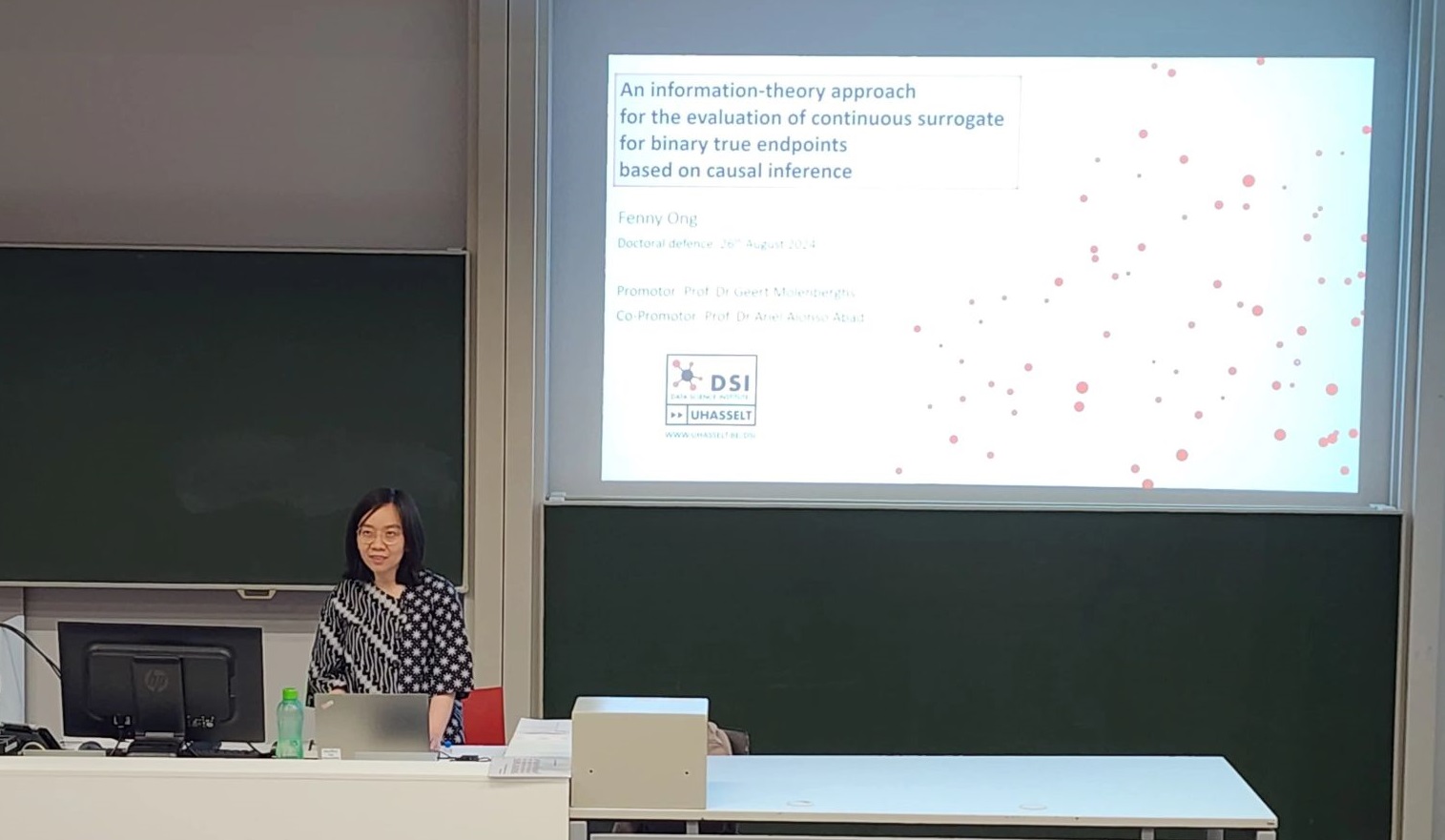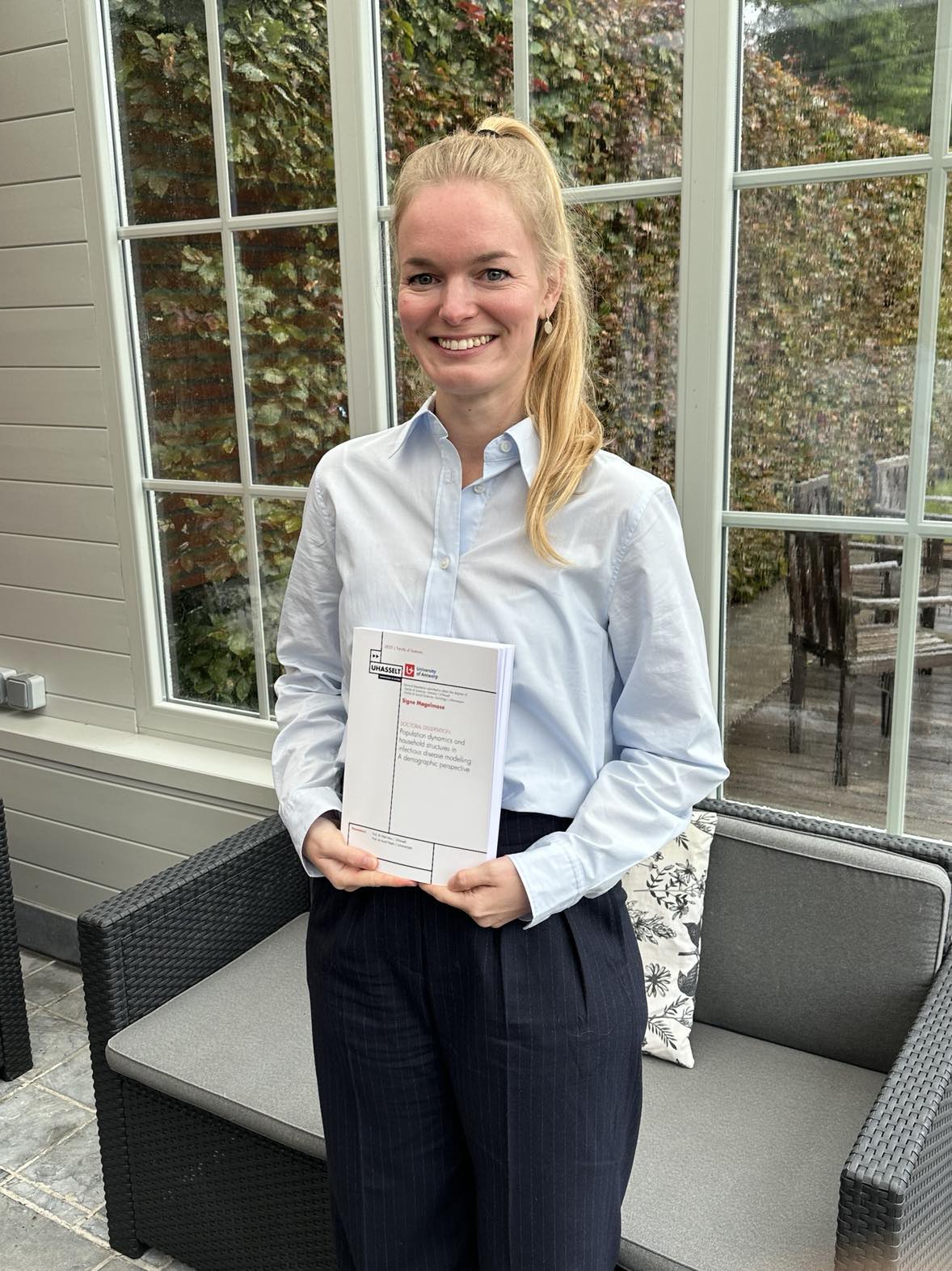Testimonials
Fenny Ong, who recently earned her PhD at UHasselt, explains why she used supercomputing infrastructure for her research:

“My PhD topic is to develop a method for the evaluation of surrogate markers in clinical trials. As part of the method development, I had to do a lot of simulation studies which might take hours, even days, for only one setting of simulations. Therefore, using a supercomputer was tremendously helpful in saving time during my research. Also, using the infrastructure is relatively straightforward, requiring only minimal additional code to allocate tasks to the system. In my experience, the support provided by the VSC team was invaluable; they were consistently available and ready to assist whenever I had issues with the use of the infrastructure. Ultimately, leveraging the supercomputer significantly reduced processing time, allowing me to focus more on other aspects of my research.”
Signe Mogelmose from UHasselt DSI who recently earned her PhD at UHasselt is very enthousiastic about the services of Vlaams Computer Centrum:

"In my research, I conducted simulations using large datasets and models with a wide range of parameters. My personal laptop would, in many cases, struggle to handle the memory and computing power required for these simulations, resulting in impractical runtimes. Discovering the VSC infrastructure was a game changer, opening a world of possibilities that were previously out of reach for someone like me with limited prior experience in supercomputing.
The availability of VSC user-friendly courses tailored for individuals without prior supercomputing knowledge made the transition smooth for me. Whenever I encountered challenges or had questions, the VSC team was very supportive and responsive, ensuring that my research progressed smoothly. I highly recommend using the VSC infrastructure for any research that involves a substantial number of simulations or large datasets. In summary, the VSC infrastructure has not only accelerated my research but has also enriched my understanding of supercomputing, making it an invaluable resource for any researcher seeking to tackle complex computational tasks."
Published 3/10/2023
Tim Lebailly (KU Leuven, Department of Electrical Engineering) is currently testing the GPU partition of LUMI for his project "Spatial-Aware Self-Supervised Learning". His experience with LUMI:

"LUMI is great for Belgium as it allows users to get very large amounts of compute. Currently, I am finishing my allocation on Hortense (Tier-1) in Ghent. To give an example, during the pilot phase on LUMI, I was able to run an experiment over 4 days which is equal to a bit more than my full allocation on Hortense for 8 months! This gives me the opportunity to scale up my research to state-of-the-art neural networks.
Also, given that LUMI is so big, the queue time is significantly smaller as the jobs you run don't have system-wide impact as opposed to smaller supercomputers like Hortense. In that regard, the user experience is really nice.
Though it's not for the faint-hearted. It uses AMD GPUs, and the documentation resources online are very limited (as opposed to NVIDIA hardware), so it's not as trivial to get your code running (as opposed to Hortense, for instance). As time goes on, the support for users will improve, and the LUMI support team will make the experience easier for a new user by providing native installs/containers for different types of common software."
Published 16/05/2022